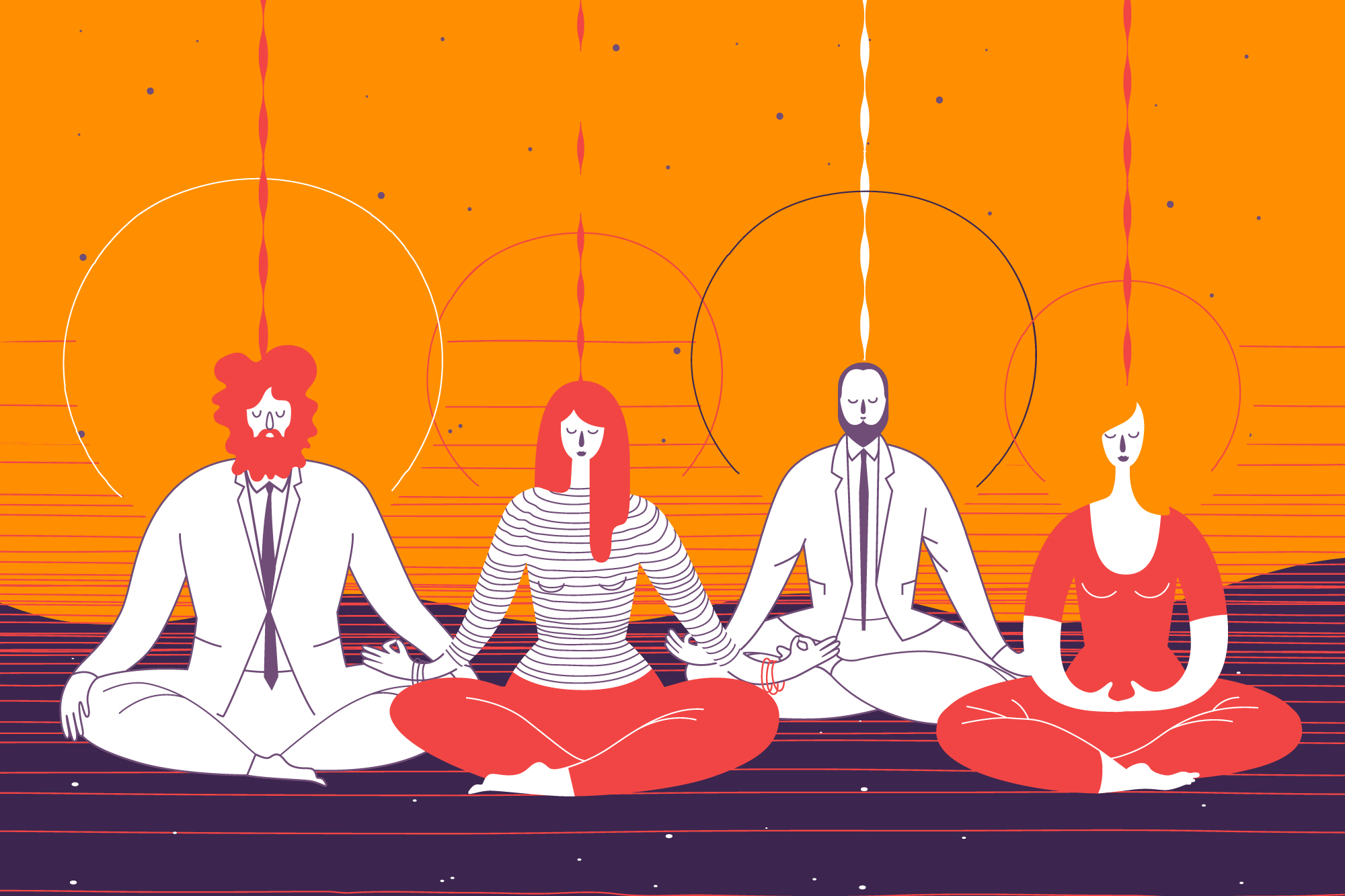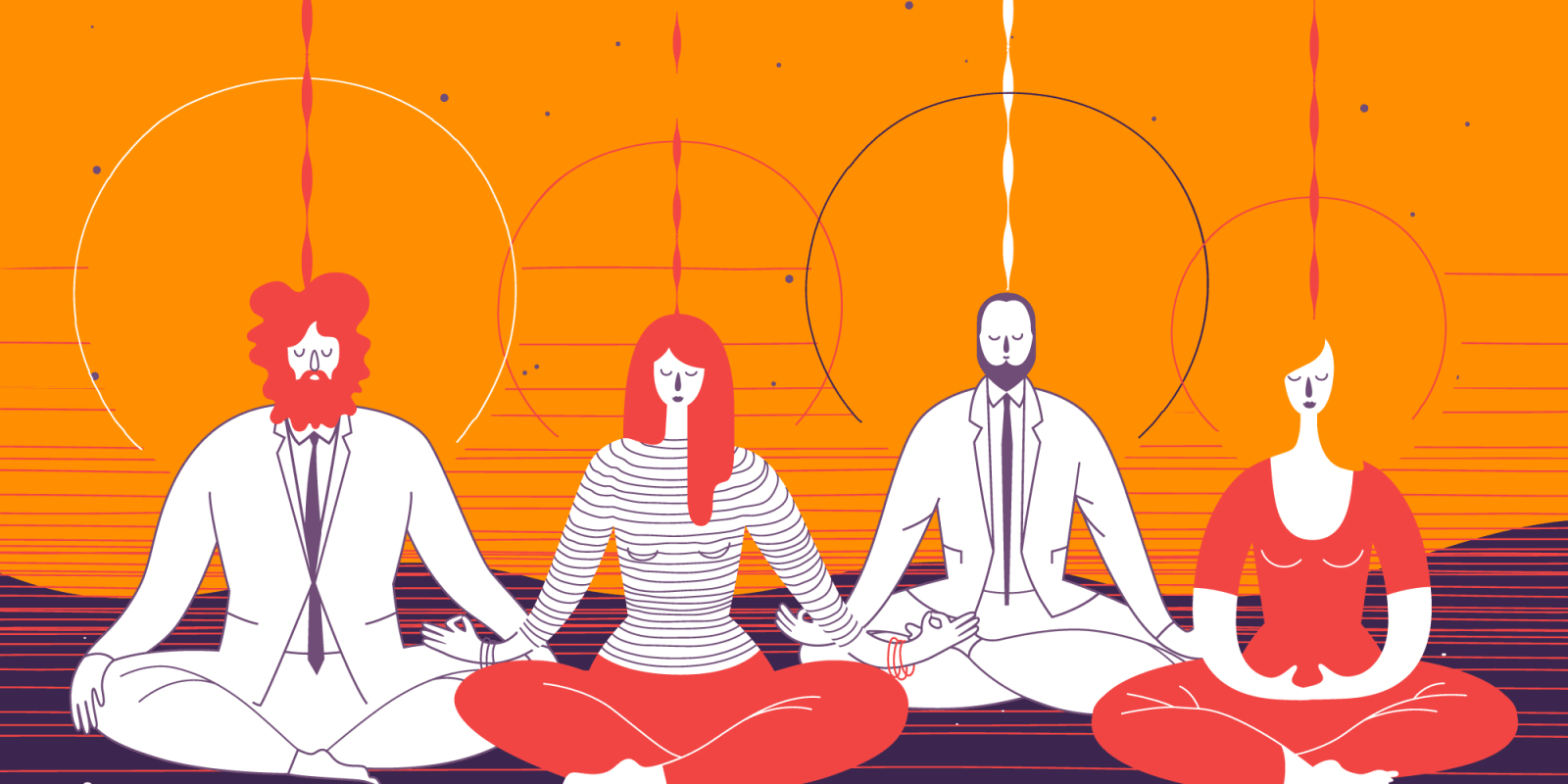
Physicians, nurses, and other medical professionals face high levels of occupational stress throughout medical training and practice. We work long hours, have many demands on our time, and make high-stakes decisions on a daily basis. In recent years, advancements in treatment options and technology have led to more complex and time-consuming patient care, and changes in the healthcare landscape have increased documentation and productivity demands.
As clinicians take on excessive workloads, we are often taught to adopt a mindset of self-sacrifice and duty — prioritizing patient care and work demands over our mental and physical health. Some health care providers may believe that taking time for their personal health is selfish or a sign of weakness. During the rigors of medical education and residency training, even the most resourceful and well-intentioned students and clinicians may find it challenging to find time for activities vital to basic health. Further, health care providers often find that responsibilities only increase after completion of training, and that time to focus on health becomes ever more elusive.
The idea of placing work above health as the dominant narrative in medicine has a myriad of consequences. It creates a sense among clinicians that, in a field so focused on the health of others, our health is not important. Yet when we disregard the well-being of health care providers, the price we pay as a society is high. Prioritizing clinician health is essential not only for the long-term well-being of providers and our families, but also to sustain the vitality of our health care workforce. Further, the health of clinicians and patients is interconnected. When we are well, we are better equipped to connect with and provide care to our patients.
To improve the health of clinicians and medical trainees, we need regulatory bodies, hospital systems, and training programs to implement multi-level solutions, including changes in reimbursement and documentation, expansion of residency positions, more humane working hours, increased delegation of clerical tasks, and creation of work environments that promote health. However, we cannot wait until systems have changed to prioritize or advocate for our health.
During my first year of residency, I spent long days taking care of patients at the hospital, then came home to take care of my child. My public health training had taught me behaviors that would increase my longevity and well-being: getting enough sleep, being physically active, finding healthy ways to relieve stress (such as meditating), connecting with others, and eating a mostly plant-based diet. But I was tired and inconsistent. I had no clear strategy to stay healthy as I was taking care of others. What I needed was a tool to support my well-being — one that enabled me to prioritize healthy habits, clearly communicate those needs to others, and simultaneously help me advocate for change in my environment. Throughout my training, I used memory tools to synthesize important information. I learned the mnemonic APGAR to assess newborn babies, FAST to quickly recall stroke symptoms, and MUDPILES to remember causes of anion gap metabolic acidosis. Even the daily SOAP note was designed to facilitate recall of its essential elements. But I could not find a memory tool to support clinician health.
So, I created a simple and evidenced-based tool; I called it the SMILE Score. This tool serves as a daily self assessment and each letter (S, M, I, L, E) represents one healthy habit and counts as one point. The daily score ranges from 0 to 5:
S: Sleep enough. Did I sleep today — for at least seven hours? Was my sleep restorative? As a resident, I often work 28 hours at a time, with little rest on call. Even for physicians without call responsibilities, extensive charting or administrative responsibilities cut into time for sleep. Shift work, stress, anxiety, and artificial light at night also contribute to poor sleep. Sleep deprivation not only compromises our immune system, it makes us more likely to feel depressed and more likely to overeat. Chronic sleep deprivation is linked to obesity, diabetes, and heart disease. It is important to find strategies to rest when we can, and to advocate for change within our work environments that facilitate adequate rest.
M: Move your body. Did I exercise today? Did I spend at least 30 minutes being active? Exercise improves cognitive function, boosts mood and energy, and reduces risk for depression and anxiety. Even adding brief sessions of activity into your routine provide benefit, such as climbing stairs at lunch or taking a brisk walk in the evening.
I: Inhale. Exhale. Did I meditate, practice mindfulness, or find other healthy ways to reduce stress today? While meditative practices are often discounted by clinicians as unscientific and ineffective, they have been shown to change neurochemical makeup and decrease stress and anxiety. There is no right or wrong way to meditate, and there are many forms, such as breathing deeply, praying, walking in nature, focusing on gratitude, and reflecting on literature.
L: Love and connect. Did I meaningfully connect with someone today? Social connection is essential for health, and social isolation has been shown to be more harmful to health than obesity or smoking. It is important to stay connected with our loved ones throughout medical training and practice, and to find ways to connect with our colleagues and patients.
E: Eat to nourish. Did I choose healthy foods today? Consuming mostly plant-based foods that are minimally processed can improve energy levels and decrease the risk for heart disease, diabetes, and certain types of cancer. Options that take little time to prepare, such as apples, berries, nuts, and carrots, can be an easy way to add healthy choices to your diet even when working long hours. I have found that when my scores are lower (such as after a long shift or during a busy ward month), my energy level and mood are also predictably lower. I have begun to track my scores over time, across different rotations in diverse hospital and clinic settings. This tool has helped me identify strategies to live healthier, as well as opportunities to advocate for change in my work and home environments. Other physicians and nurses have used this tool to support their own health, to improve preventive health efforts among patients, and as part of health curricula in schools.
Finally, this tool is NOT meant to be a solution for burnout. It is not intended to make already resilient and resourceful clinicians feel inadequate. It is meant to remind clinicians that their health matters. While we advocate for multi-level solutions to improve healthcare, we also need strategies to prioritize and advocate for our health. The SMILE Score is one tool that can help support clinician health.
A version of this article was previously published at sheMD.







